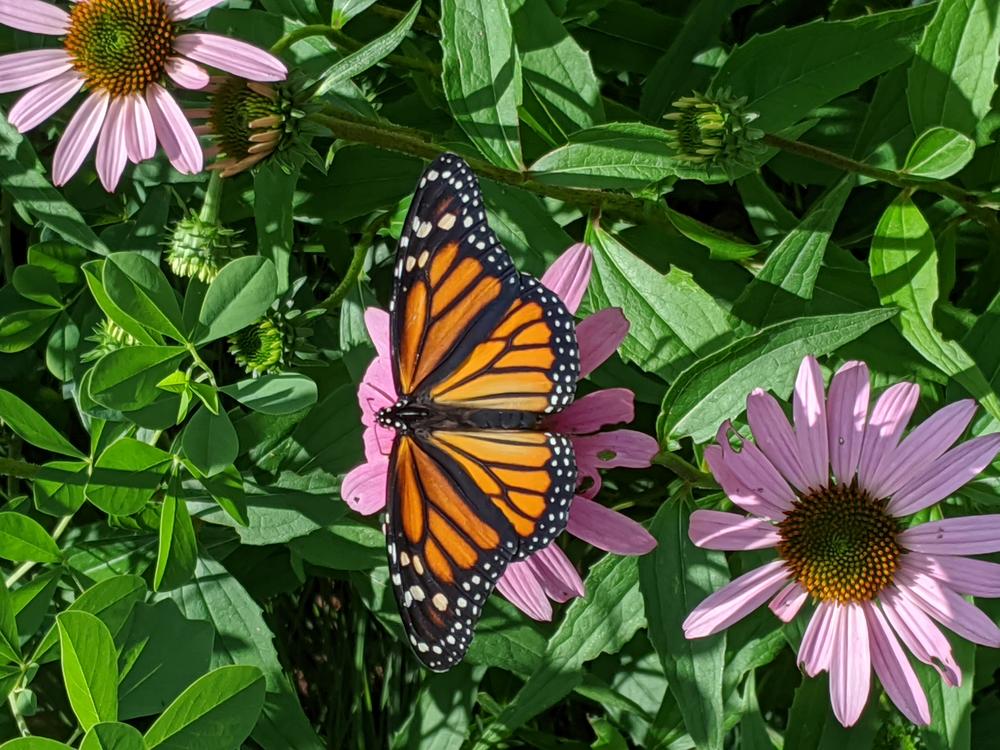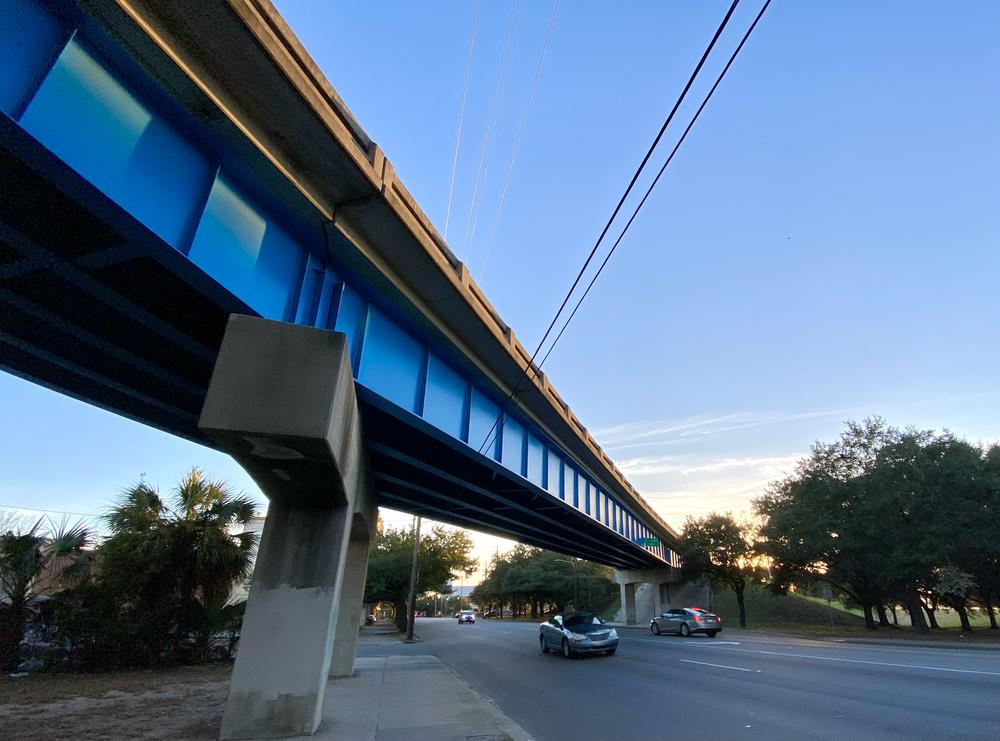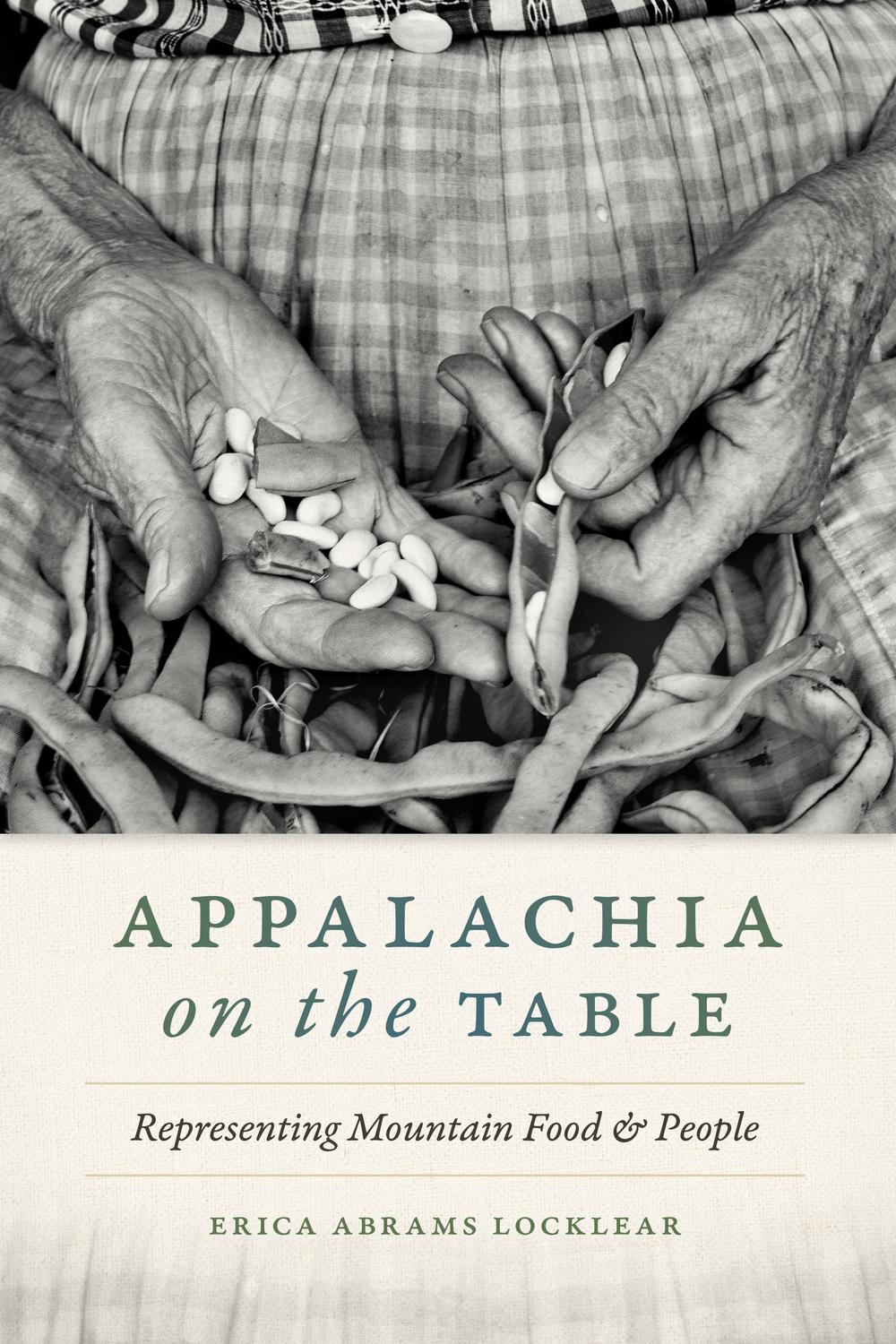
Section Branding
Header Content
Georgia Today: Monarch butterflies; Savannah interstate flyover; Stories you may have missed in 2023
Primary Content
LISTEN: On the Monday, Jan. 1 edition of Georgia Today: You can help scientists study monarch butterflies; the Georgia DOT may remove an interstate flyover from a historically Black neighborhood in Savannah; and we'll look back at some interesting stories you might have missed throughout 2023.

Peter Biello: Welcome to the Georgia Today podcast from GPB News. Today is Monday, Jan. 1, 2024. I'm Peter Biello. On today's episode, you can help scientists study monarch butterflies. The Georgia DOT may remove an interstate flyover from a historically Black neighborhood in Savannah. And we'll look back at some of the interesting stories you might have missed throughout 2023 on this edition of Georgia Today.

Story 1:
Peter Biello: As millions of monarch butterflies make their way to Mexico for the winter, butterfly scientists want those in their flight path to report monarch sightings. Doing so can help these scientists answer critical questions and help the species thrive as its environment changes. GPB's Sofi Gratas has more.
Sofi Gratas: Monarchs have been migrating thousands of miles south for centuries. But as Susan Meyers puts it —
Susan Meyers: We could be losing this migration pattern.
Sofi Gratas: Meyers is with Monarchs Across Georgia. She says more monarchs are staying in the southern U.S. during the winter as it gets warmer and as more people plant non-native milkweed. Monarch sightings from ordinary people this winter can help Meyers and other monarch scientists understand all of this.
Susan Meyers: Are they just resting or roosting? Are they drinking nectar from flowers? Or are you seeing them mating?
Sofi Gratas: Mating and eating could be a bad sign as monarchs should be dormant during the winter. Sonia Altizer with the University of Georgia's Project Monarch Health says these observations are crucial.
Sonia Altizer: We need to pay attention to what's happening to monarchs here and monarch habitats here if we really want to understand what's going to happen to their migration in the future.
Sofi Gratas: Monarch sightings can be reported to Project Monarch Health and online at JourneyNorth.org. For GPB News, I'm Sofi Gratas.
Story 2:
Peter Biello: The gun control organization founded by former Arizona congresswoman Gabrielle Giffords has opened a chapter in Georgia. GPB's Orlando Montoya reports the group aims to advance gun safety measures in the legislative session that begins this month.
Orlando Montoya: Giffords was injured in a mass shooting in 2011. Since then, the organization that bears her name has launched Gun Owners For Safety coalitions in nine states. Claudio Fruin leads the New Georgia chapter.
Claudio Fruin: I have a right to own a gun. I'm a — I'm a responsible gun owner. I want everybody else to be a responsible gun owner.
Orlando Montoya: Giffords national spokesman Jason Boren says "responsible" means:
Jason Boren: Safer storage practices. We're advocating for universal background checks. We advocate for extreme risk protection orders, also called red flag laws.
Orlando Montoya: A gun safety bill got a rare hearing in the Republican-controlled General Assembly in the last session, but failed to make it out of committee. For GPB News, I'm Orlando Montoya.

Story 3:
Peter Biello: The Georgia Department of Transportation plans to study the possibility of removing an interstate flyover from a historically Black neighborhood in Savannah. GPB's Benjamin Payne reports.
Benjamin Payne: When Interstate 16 was built in the 1960s, the state government bulldozed over many Black-owned businesses and homes on the west side of downtown Savannah. Now, the city will be using federal grant money to help fund a feasibility study on the potential demolition of the I-16 flyover. The Georgia Department of Transportation will pick up 80% of the $900,000 tab, with Savannah covering the remaining 20%. City manager Jay Melder spoke ahead of the city council's 7 to 2 vote in December.
Jay Melder: City staff firmly believes that the removal of this flyover would be a big positive benefit not only to the communities surrounding that flyover, but to our overall traffic patterns.
Benjamin Payne: Georgia U.S. Sen. Raphael Warnock, who grew up next to the I-16 flyover, strongly supports its removal. For GPB News, I'm Benjamin Payne in Savannah.
Story 4:
Peter Biello: Today is the first day of 2024, but there are a lot of stories you may have missed from 2023. So over the past few episodes, we've been highlighting some of them. And here's another: GPB's Grant Blankenship reports on how Bibb County Schools empowered students to help their hungry classmates.
Grant Blankenship: Bibb County school officials are calling a monthslong pilot program aimed at empowering students to steer food to their hungry classmates a success. The program is called Helping Hands Ending Hunger. In it, member schools allow teams of students to collect some uneaten food from school lunch trays. Food-insecure classmates take the food home later. Latrina Pennamon-Nash is the principal of Ballard Hudson Middle School, one of four Bibb schools where the program has been implemented since the beginning of the calendar year. She said she was sold on the idea after seeing the program at work in Dougherty County.
Latrina Pennamon-Nash: Kids coming to school, if they're hungry, they can't focus and they definitely cannot learn. So we feel like we're helping to bridge some of that gap.
Grant Blankenship: The Bibb County School District estimates some 362 families across four schools have been helped just in the pilot period. For GPB News, I'm Grant Blankenship in Macon.
Story 5:
Peter Biello: Insurance coverage of mental health is now the law, and the Carter Center, through an awareness campaign, is driving people to a website that provides specific instructions on accessing mental health services. GPB's Ellen Eldridge has the story.
Ellen Eldridge: The Carter Center is reminding Georgians that your health insurance must cover your mental and emotional health as much as it covers your physical health. The new messaging will begin in Albany and Savannah. Whether you have Medicaid or private insurance, providers must follow federal parity law. That means mental health needs are covered in the same way as being physically sick. And the state's 2022 Mental Health Parity Act is helping keep health insurance companies accountable. Dr. Eve Byrd is with the Carter Center Mental Health Program. She says they partnered with the Georgia Parity Collaborative for the awareness campaign.
Dr. Eve Byrd: Insurance coverage of mental health is the law now. We're driving people with this awareness campaign to a landing site which provides some really very specific instructions about how to go about accessing mental health services.
Ellen Eldridge: The campaign is especially interested in reaching Medicaid recipients and Black, Indigenous and other people of color. For GPB News, I'm Ellen Eldridge.

Story 6:
Peter Biello: Appalachian cuisine has grown in popularity in recent years. National publications have written articles about it, and some restaurants are dedicated solely to it. But at the turn of the 20th century, the nation viewed Appalachian food as coarse. GPB's Devon Zwald spoke with Erica Abrams Locklear about her book Appalachia on the Table, representing mountain food and people.
Devon Zwald: Food from Appalachia is having a moment. You may have read articles about it in national publications or eaten at a restaurant solely dedicated to the cuisine. But the food from Appalachia wasn't always so respected. The recently released book Appalachia on the Table explores how the region's food has been represented from the turn of the 20th century until today, and how those depictions of food have influenced stereotypes of Appalachia and its people. I spoke with the author, Erica Abrams Locklear. Here's our conversation. Welcome.
Erica Abrams Lochlear: Thank you. I'm really excited to be here. Thanks for having me.
Devon Zwald: So I want to start with a concept that emerges in the late 1800s and early 1900s that you talk about in your book that calls Appalachia a region distinctly separate from other parts of the country. How did people arrive at this viewpoint and how did food specifically contribute to that emergence?
Erica Abrams Lochlear: It's an interesting question that scholars, historians, American studies folks, literature critics have been grappling with for quite some time. So local color writers in particular, and writers of travel narratives in the late 1800s and early 1900s are often cited as sort of part of the cultural genesis of a lot of ideas about Appalachia. A scholar named Henry Shapiro is probably the best known person to write about that. And so I was building from his ideas. And what I noticed I found really fascinating and equally disturbing is that in a lot of that literature where you find some very familiar stereotypes, even today, of mountain people, the descriptions of food were very similar. And that one word in particular kept coming up and that's "coarse" — c-o-a-r-s-e. And when it was used to describe the food, the idea was that it was too greasy. It was not properly prepared. It was difficult to digest and it was something to be avoided. When the word was applied to people, then the idea was that these people who were consuming this coarse food were considered uncivilized or unsophisticated or uncouth and, like the food, probably best avoided. And and it was a paradigm that I saw coming up again and again.
Devon Zwald: There are also a lot of examples of celebrations of Appalachian foods in the book. How did these celebrations complicate people's perceptions of the region?
Erica Abrams Lochlear: Right. So one of the driving questions of this project is how is it that you've got this sort of national idea of a region and its people and its cuisine come from such a denigrated place at the turn of the 20th century to this kind of celebrated novelty which is where we've arrived now? People all across America are really into Appalachian food right now. In April, the same month that my book came out of 2023, Bon Appetit Magazine published a 16-page spread called "Appalachia Anew." And there are articles in The Washington Post and in The New York Times. There are restaurants devoted solely to Appalachian cuisine. And so it's definitely being celebrated.
Devon Zwald: Is there anything that you want for people who have a new interest in Appalachian food to consider when they cook or they eat it?
Erica Abrams Lochlear: Oh, yes. I think the biggest one is to be aware that it's not a good idea to curate a list of foods that count as Appalachian at the exclusion of other foods. And a lot of this has to do with the erasure of the Indigenous roots of Appalachian food, with the contributions that people descended from enslaved people and free people of color have made to Appalachian cuisine. Another part of it is to be aware of access and to ask yourself how much do the ramps cost at this restaurant versus how much do they cost at the community supper. And should I go to that community supper as well?
Devon Zwald: And what are ramps, for those of us who aren't familiar.
Erica Abrams Lochlear: Ramps are a forageable. Sometimes people call them wild leeks. Sometimes people call them wild onions. They're technically not an onion, but they're — they're very related and they're extremely strong and pungent. And so if you eat a raw ramp, the scent of it stays with you for a really long time. And in mid 20th century Appalachia, ramps were not really considered cool. It was something that people who didn't have access to other fresh greens might eat in the springtime of the year. But there were ramp festivals at that time, but it was a very localized kind of consumption, whereas now they are extremely trendy, extremely popular and very expensive, often over $20 a pound.
Devon Zwald: You mentioned groups that have been erased from conversations around Appalachian food. How do you bring those groups back into the conversation?
Erica Abrams Lochlear: Yeah, again, I think just being aware and asking questions and trying to do your own research. To go back to the ramps example: Ramps are an important part of Cherokee culinary history as well, and there are around festivals in Cherokee, North Carolina, that coincide with the opening of trout season.
Devon Zwald: Erica Abrams Locklear is the author of Appalachia on the Table. Thank you for your time.
Erica Abrams Lochlear: Thank you so much.
Story 7:
Peter Biello: A North Carolina man backed down from a proposal to build a dragon sculpture the size of half a football field on top of a North Georgia mountain. Sci-fi and fantasy fan. Michael Parish operates unusual Airbnbs, including a Wizards Hollow and a planned starship out of Asheville. He plans to retire in North Georgia's Hiawassee and wanted to build a towering Hogwarts-style dragon sculpture on nearby Whiskey Mountain. GPB's Orlando Montoya talked with Mr. Parrish about his plans.
Michael Parrish: We're in the process of just trying to do something different up there. It may be more like a castle, or it may be more like a Victorian type of — it's going to be out of the ordinary, just like all our other structures have been.
Orlando Montoya: And so when did the dragon idea come about?
Michael Parrish: Well, the dragon idea has — has been popping around in my brain for a long, long time. And in retrospect, Orlando, I would say I-I just didn't anticipate such a negative backlash. I wasn't trying to cause people heartache in a town in which I'm looking forward to living. And so, you know, when I went to the — I went a meeting Monday night and people were very passionate about not wanting the dragon and I listened to what they had to say and I understood and I pulled my dragon off the table.
Orlando Montoya: But it was a — it was a fantastical idea. And how I say "fantastical," I'm not necessarily meaning good or bad because I don't want to say good or bad, but it certainly was unique.
Michael Parrish: Well, thank you. Thank you. I thought it was a fantastical idea. I thought it would be unique. I thought it would bring — Hey, yeah, I just I'm a fantasy guy and I loved it. And a lot of other people loved it, but a lot of other people didn't. And I'm just not going to. I want to be a longtime resident in my remaining years at Hiawassee, and I'd like to get along with everyone. And, you know, it just appears that the dragon was too controversial.
Orlando Montoya: And when I say dragon, when you say dragon, I don't think we're sort of giving it its due. I read — and is this true, that it was half the size of a football field?
Michael Parrish: That is true. It we had it. We had it designed to be 35 feet tall, which is — 35 feet is the tallest you can go on a mountain with the mountain pass protection law, and it was going to have a wingspan of 160 feet. And I was told that I could absolutely build it there because there were no zoning laws to prevent me from doing it. So I was heading down that path until I listened to a lot of people that were very passionate about — about not wanting it. And at the end of the day, I, I just decided to go ahead and pull — pull that off the table.
Orlando Montoya: So what are you going to do with your dragon-ly interest at this point?
Michael Parrish: Oh, we may — we, we will — if I build a castle up there, will probably build a smaller dragon that can be seen just from my property. And, and we're — we're thinking through those things right now.
Orlando Montoya: One thing I did want to know was where did you get this interest in sci-fi and dragons and in castles?
Michael Parrish: So from a from a very young age, my mother encouraged us to read and — and she really I tell you, she — she — for those old folks out there that can remember Ray Bradbury. He was, that was the first book I ever picked up was a Ray Bradbury book on sci-fi. And the next book I picked up was from J.R.R. Tolkien. And so from there, that — I appreciate you asking that question — from there, that, that's where I was an avid reader because of those two gentlemen.
Orlando Montoya: Thank you very much for talking to me today.
Michael Parrish: Okay. Orlando, I hope you have a great day. Thanks for talking to me.
Peter Biello: And that's it for this first edition of Georgia Today of 2024. Thank you so much for tuning in. If you want to learn more about these stories, visit GPB.org/news. And if you want to keep up with the news in the new year, best thing to do, of course, is to subscribe to this podcast will stay current in your podcast feed that way. If you've got feedback or a story idea, as always, our email box is ready for you. Send us a note. The address is GeorgiaToday@GPB.org. I'm Peter Biello. Thanks again for listening. Happy New Year and we'll see you tomorrow.
---
For more on these stories and more, go to GPB.org/news



